
Sir William McMahon was an Australian politician who served as the 20th prime minister of Australia from 1971 to 1972. He held office as the leader of the Liberal Party of Australia. He was a government minister for over 21 years, the longest continuous service in Australian history.

Mary Genevieve Gaudron, is an Australian lawyer and judge, who was the first female Justice of the High Court of Australia. She was the Solicitor-General of New South Wales from 1981 until 1987 before her appointment to the High Court. After her retirement in 2002, she joined the International Labour Organization, serving as the President of its Administrative Tribunal from 2011 until 2014.
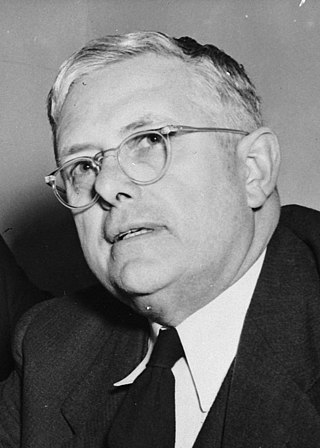
Herbert Vere Evatt, was an Australian politician and judge. He served as a justice of the High Court of Australia from 1930 to 1940, Attorney-General and Minister for External Affairs from 1941 to 1949, and leader of the Australian Labor Party (ALP) and Leader of the Opposition from 1951 to 1960. Evatt is considered one of Australia's most prominent public intellectuals of the twentieth century.

Ian McCahon Sinclair is an Australian former politician who served as leader of the National Party from 1984 to 1989. He served as either a minister or opposition frontbencher for all but a few months from 1965 to 1989, and later Speaker of the House of Representatives from March to August 1998.

Sir Garfield Edward John Barwick was an Australian judge who was the seventh and longest serving Chief Justice of Australia, in office from 1964 to 1981. He had earlier been a Liberal Party politician, serving as a minister in the Menzies government from 1958 to 1964.
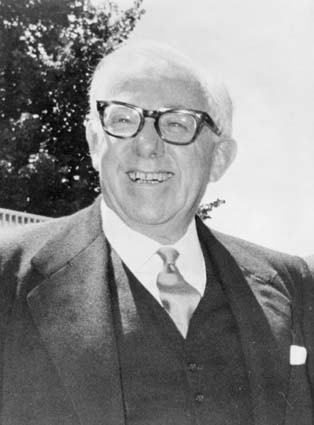
William Charles Wentworth, usually known as Bill Wentworth and sometimes referred to as William Charles Wentworth IV, was an Australian politician. He was a member of the Liberal Party for most of his career and held ministerial office in the governments of John Gorton and William McMahon, serving as Minister for Social Services (1968–1972) and Minister in charge of Aboriginal Affairs (1968–1971). Wentworth served in the House of Representatives from 1949 to 1977, representing the New South Wales seat of Mackellar. He frequently crossed the floor and served his final months in parliament as an independent.

Albert Bathurst Piddington KC was an Australian lawyer, politician and judge. He was a member of the High Court of Australia for one month in 1913, making him the shortest-serving judge in the court's history.
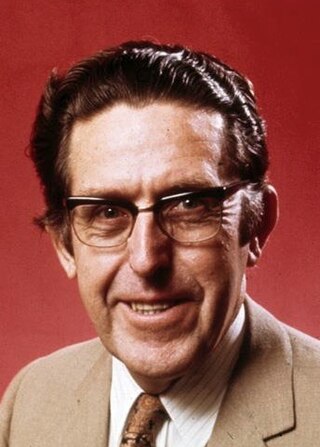
Keppel Earl Enderby was an Australian politician and judge. Enderby was a member of the House of Representatives, representing the Australian Labor Party between 1970 and 1975 and became a senior cabinet minister in the Gough Whitlam government. After politics, he was appointed a Justice of the Supreme Court of New South Wales.

Francis John Walker, QC was an Australian politician and judge. He was a member of the New South Wales Legislative Assembly representing Georges River between 1970 and 1988 and subsequently a member of the Australian House of Representatives representing Robertson between 1990 and 1996, both for the Australian Labor Party. During his parliamentary careers, Walker held a range of ministerial responsibilities. He was the first New South Wales Minister for Aboriginal Affairs and was responsible for some of the first legislation that recognised the obligation to financially compensate indigenous Australians for the loss of their land. He has been given credit for achieving one of the first big breakthroughs in the protection of Australia's natural environment, the saving of the Terania Creek rainforest.
Kevin Fredrick O'Leary QC was the second Chief Justice of the Supreme Court of the Northern Territory. He was appointed to that position on 12 September 1985 after James Muirhead had acted in the position following the relocation to Perth of the Territory's first Chief Justice William Forster earlier that year.
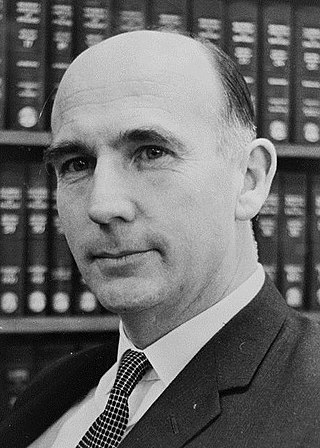
Robert James Ellicott, was an Australian barrister, politician and judge. He served as Solicitor-General of Australia (1969–1973) before entering the House of Representatives at the 1974 federal election as a member of the Liberal Party. He held senior ministerial office in the Fraser government, serving as Attorney-General (1975–1977), Minister for Home Affairs (1977–1980), the Capital Territory (1977–1980), and Home Affairs and the Environment (1980–1981). He retired from politics to be appointed to the Federal Court of Australia, serving as a judge from 1981 to 1983.
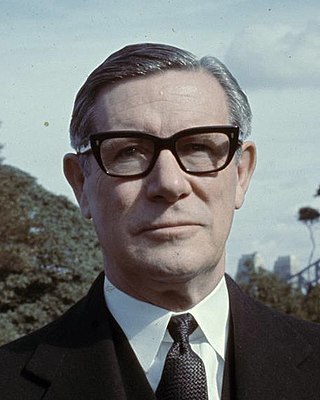
Sir Nigel Hubert Bowen, was a Canadian-born Australian lawyer, politician and judge. He was a member of the Liberal Party and served in the House of Representatives from 1964 to 1973, representing the New South Wales seat of Parramatta. He held senior ministerial office in multiple Coalition governments, serving as Attorney-General, Minister for Education and Science (1969–1971), and Minister for Foreign Affairs (1971–1972). After the Coalition lost the 1972 election he was an unsuccessful candidate to replace William McMahon as Liberal leader, losing to Billy Snedden by a single vote. After leaving politics he served as the inaugural chief justice of the Federal Court of Australia (1976–1990).
A political family of Australia is a family in which multiple members are involved in Australian politics, particularly electoral politics. Members may be related by blood or marriage; often several generations or multiple siblings may be involved.
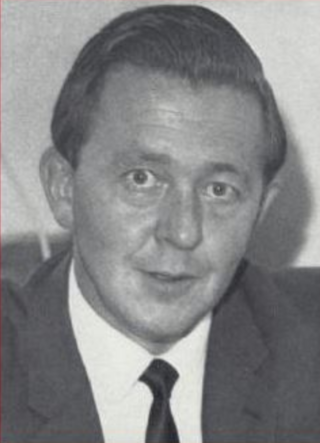
Ivor John Greenwood was an Australian barrister and politician. He was a member of the Liberal Party and held senior ministerial office in the McMahon and Fraser governments. He served as Minister for Health (1971), Attorney-General and Minister for the Environment, Housing and Community Development (1975–1976). He was a Senator for Victoria from 1968 until his death in 1976, aged 49.

John Michael Spender was an Australian politician, diplomat and barrister. He was a member of the House of Representatives from 1980 to 1990, representing the Liberal Party, and was a shadow minister under Andrew Peacock and John Howard. He later served as Ambassador to France from 1996 to 2000.
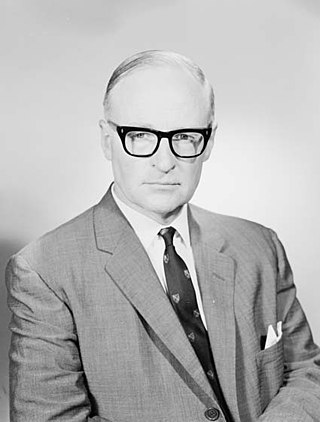
Edward Henry St John QC was a prominent Australian barrister, anti-nuclear activist and Liberal politician in the 1960s. His political career came to a controversial end after he criticised the Prime Minister John Gorton. His book A Time to Speak was an account of his eventful three years in politics from 1966 to 1969. Justice Michael Kirby described St John as a "contradictory, restless, reforming spirit".
Clive Raleigh Evatt was an Australian politician, barrister and raconteur. He was a member of the New South Wales Legislative Assembly from 1939 until 1959. At various times he sat as a member of the Industrial Labor Party, Labor Party and as an independent.
Alan Douglas Joseph Reid, nicknamed the Red Fox, was an Australian political journalist, who worked in the Federal Parliamentary Press Gallery from 1937 to 1985. He is noted for his role in the Australian Labor Party split of 1955 and his coinage of the term "36 faceless men" to describe the members of the Australian Labor Party's Federal Conference.

The Gorton government was the federal executive government of Australia led by Prime Minister John Gorton. It was made up of members of a Liberal-Country Party coalition in the Australian Parliament from January 1968 to March 1971.

George Frederick Amsberg was an Australian barrister and judge of the District Court of New South Wales. He was a prominent member of the Sydney Jewish community. In his legal practice Amsberg defended some of Sydney's most high-profile criminals. In 1953, after becoming a judge, Amsberg was appointed as a Commissioner to preside over the highly political Royal Commission of Inquiry into the conduct of Joshua Arthur, a New South Wales government minister.

















